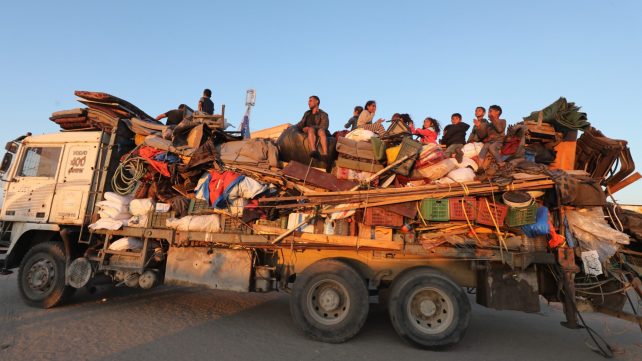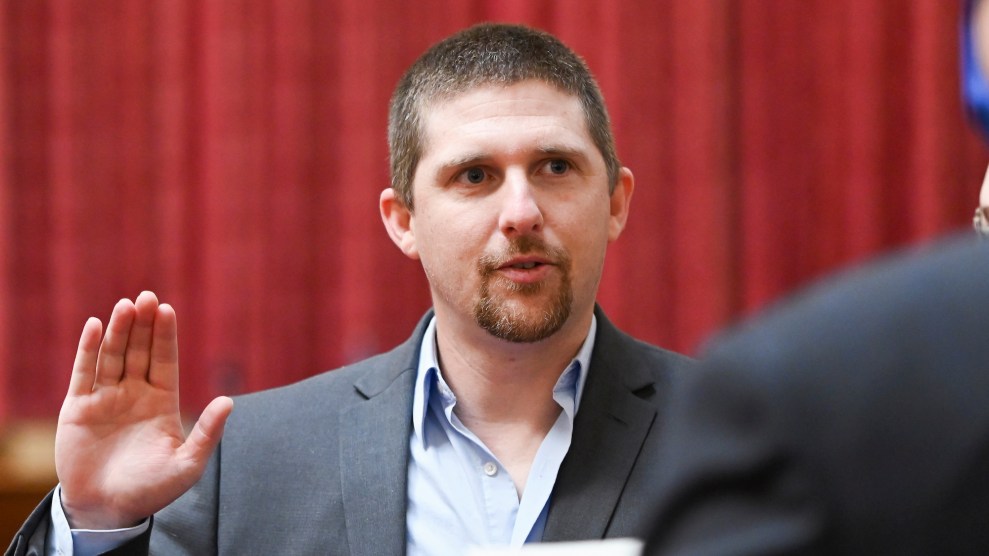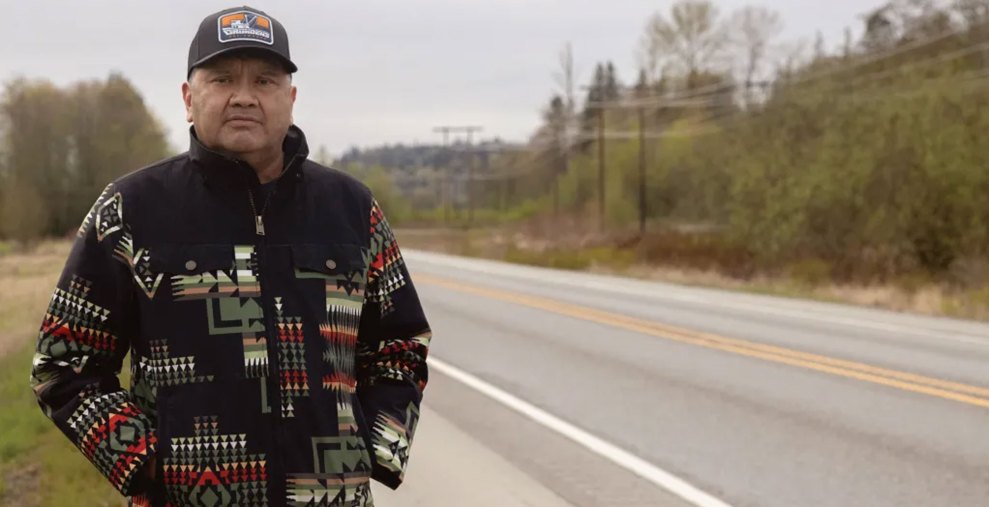
People inspect destroyed houses following Israeli attacks in the southern Gaza Strip city of Rafah.Rizek Abdeljawad/Xinhua/ZUMA
Israeli forces announced on Tuesday that they had seized control of the Rafah border crossing, a vital passageway for transporting aid into Gaza, prompting intense condemnation from international aid groups warning that the humanitarian crisis would be significantly exacerbated.
The incursion into Rafah comes a day after White House national security spokesperson John Kirby said that President Biden “doesn’t want to see operations in Rafah that put at greater risk the more than a million people that are seeking refuge there,” On Sunday, Cindy McCain, executive director of the World Food Programme, said on NBC’s Meet the Press that the “full-blown famine” in Gaza’s north was quickly “moving its way south.”
But Israeli Prime Minister Benjamin Netanyahu, who has been staunch about plans to invade Rafah, has openly defied these warnings. He said last week that the incursion would occur “with or without a deal” to free the hostages or enact a ceasefire, claiming that Rafah is the group’s last major stronghold.
The Israel Defense Forces alleged in a Tuesday morning post on X that the crossing “was being used for terrorist purposes.” The IDF also claimed that it “facilitated the expansion of field hospitals, tents, and an increase in water, food and medical supplies” for Gazans in Al Mawasi, about four miles northeast of Rafah, where Israeli forces were encouraging residents to evacuate. But officials and humanitarian groups warn that the invasion, particularly the blocking of the crossing, will be catastrophic for Palestinians.

Displaced Palestinians, including women and children, carry their belongings on cars and trucks on Monday after an evacuation order issued by the Israeli army.
Omar Ashtawy/APA/ZUMA
“A lifeline has just been blocked,” Akram al-Satarri, a Gaza-based journalist, told Democracy Now on Tuesday. “That means the patients who are in need [of] medical care…are denied that access. That means the general population of southern Gaza and northern Gaza alike are deprived from the food supplies that were delivered and were even slow before this last development took place.”
“A military assault will, at best, greatly complicate aid delivery,” UNICEF Spokesperson James Elder said. “If Rafah gate closes for an extended period, it’s hard to see how famine in Gaza can be averted.”
The aid agencies paint a dire picture of the situation on the ground in Rafah: There is one toilet for every 850 people, and one shower for every 3,500 people, according to Elder. There are 700,000 women and girls in Rafah, according to UN Women. As I previously reported, pregnant Gazans have miscarried and struggled to access care since the start of the war, and UN Women reports that the majority of pregnant Gazans have reported complications.
Children make up about half of Rafah’s population, according to UNICEF, which notes that more than 14,000 children have been killed in the war, citing the latest estimate by the Palestinian Ministry of Health. Ahead of Tuesday’s incursion, UNICEF Executive Director Catherine Russell warned that “if large-scale military operations start, not only will children be at risk from the violence, but also from chaos and panic, and at a time where their physical and mental states are already weakened.”
The latest news comes as Egypt and Qatar have been trying to broker a ceasefire between Hamas and Israel, which Hamas said Monday it had accepted. But a statement from Netanyahu’s office said that the Hamas ceasefire proposal “is far from meeting Israel’s core demands” and that it will send a ranking delegation to Egypt “in an effort to maximize the possibility of reaching an agreement on terms acceptable to Israel.” Israeli citizens, meanwhile, have pressured the government to immediately enact a ceasefire. The AP reported that about 1,000 protesters gathered Monday near the defense headquarters in Tel Aviv, and that about 100 protesters marched towards Netanyahu’s residence in Jerusalem holding a banner that read, “The blood is on your hands.”









